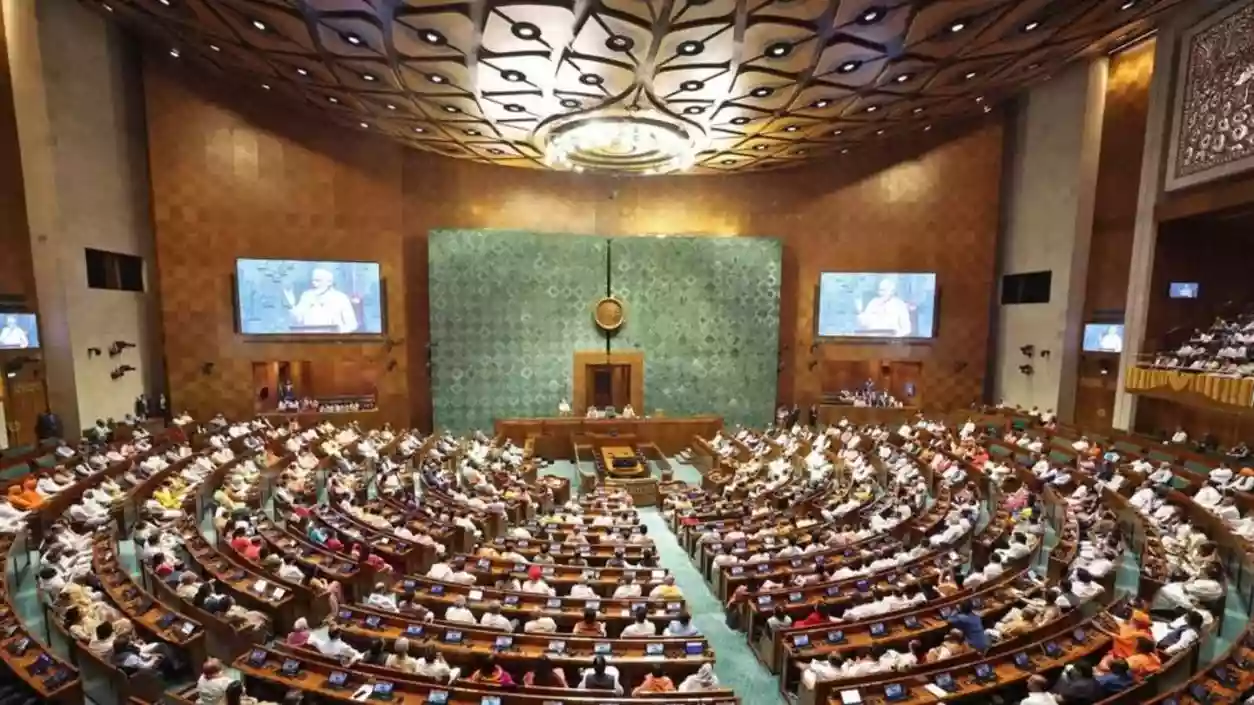.gif)
.gif)

The first meeting of the Joint Parliamentary Committee (JPC) on the 'One Nation, One Election' (ONOE) bills took place on January 8, 2025. The Constitution (129th Amendment) Bill and the Union Territories Laws (Amendment) Bill, introduced in the Lok Sabha on December 18, 2024, have been referred to the 39-member JPC for detailed scrutiny. The committee includes 27 members from the Lok Sabha and 12 from the Rajya Sabha. The JPC's task is to review the provisions of the bills and assess their potential implications.
During the meeting, the Ministry of Law and Justice presented the provisions of the bills, which seek to amend the Constitution and Union Territories Laws to allow for simultaneous elections for the Lok Sabha and state assemblies. One of the primary aims of the legislation is to address the growing concerns over the cost and disruption caused by frequent elections. The Ministry emphasized that holding simultaneous elections would not only save public money but also reduce disruptions to governance and development.
Opposition members, including Congress MP Priyanka Gandhi Vadra, questioned the government's claim that simultaneous elections would reduce electoral expenditure. They pointed out that there was no comprehensive estimate available that demonstrated the cost-saving potential of such an approach, especially in light of the 2004 Lok Sabha elections when EVMs were first used across all 543 constituencies. The introduction of EVMs in 2004 had been credited with reducing the cost and logistical challenges of conducting elections. In response, BJP MPs argued that ONOE would streamline the electoral process and eliminate the financial burden of holding multiple elections in different years. BJP MP V D Sharma noted that a high-level committee chaired by former President Ram Nath Kovind had consulted over 25,000 citizens, with the overwhelming majority supporting the idea of simultaneous elections.
One of the key concerns raised by opposition parties was the potential negative impact on India's federal structure. MPs from Congress, DMK, and Trinamool Congress expressed fears that ONOE would undermine the autonomy of states and marginalize regional parties. They emphasized that local and state issues might be overshadowed by national political debates during simultaneous elections, reducing the focus on region-specific concerns. YSR Congress MP V Vijayasai Reddy stated that simultaneous elections would dilute the diversity of political representation, potentially undermining the engagement of elected representatives with their constituents. Reddy also raised concerns about the over-reliance on national parties, which could dominate the political landscape, sidelining regional voices.
BJP MPs, however, defended the proposal, arguing that ONOE would lead to more efficient governance by reducing the frequency of elections and allowing more time for developmental work. BJP MP Sanjay Jaiswal cited historical precedents, including the early dissolution of seven state assemblies in 1957 to ensure simultaneous elections, and questioned whether this was considered a violation of the Constitution at the time. BJP MPs also argued that the current cycle of elections, which often occur every year in different states, hampers progress and governance. Shiv Sena's representative, Shrikant Shinde, shared concerns about the disruption caused by frequent elections in Maharashtra, where state, Lok Sabha, and local body elections are often held close together, leading to delays in development work.
Another area of discussion was the implementation of mid-term elections under ONOE. The bills propose that if a mid-term election is necessary due to the collapse of a government, the new legislature would serve for the remainder of the outgoing legislature’s term. JD(U) MP Sanjay Jha questioned whether governments elected for shorter terms would be able to focus on governance and development effectively, as opposed to governments with full five-year terms.
The committee also received substantial documentation to support their deliberations. Members were provided with over 18,000 pages, including a report from the high-level committee led by Ram Nath Kovind and annexures, both in Hindi and English. Several opposition MPs suggested that the JPC should be given a longer review period due to the complexity of the proposed changes and their potential long-term consequences. Some called for the tenure of the committee to be extended to a year to ensure thorough scrutiny. The committee's next steps will involve detailed discussions on the bills' implications for the political system, federalism, governance, and the electoral process. Once the JPC concludes its review, it will report its findings and recommendations to the Parliament.